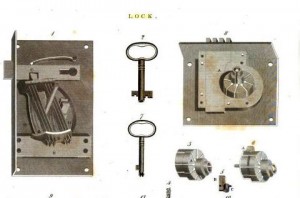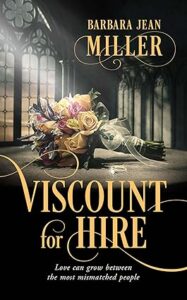I was so thrilled to spy in my inbox this funnily worded question from Georgie Wickham…
Moniker/Name: Gerogie Wickham
Source of Question: Research
Your Question: If you have a butler, would you knock at the front door of your own house? Did ladies carry front-door keys with them? Most doors I’ve seen would have required a fairly heavy key.
I’d like to know, partly to understand how quickly one could get off the street, and also to get a sense of how heavy a reticule would be (and therefore how useful as an impromptu weapon).
This is a great and important question, so thanks for asking Georgie! I have seen some uh-ohs with historical accuracy on this detail so I was thrilled for the opportunity to dive in a little deeper and provide a much needed primer on Regency lock and keys.
First and foremost, we have lots of wonderful sources from contemporaries of middle of the night visitors banging on the doors to be let in. Only in rare cases of gentleman’s lodgings where they had one or fewer servants might they carry a key. Otherwise, the keys typically would stay with one or two of the servants of the house, typically the housekeeper and the butler.
If you were out during the day or evening at an evening event (as a lady) you would most likely be attended by some servant whose duty it would be to run to the front door and knock for the butler to open the door. So, technically, a lady would not be required to knock on her own door–but she would most certainly have a servant do so. From “The footman’s directory and butler’s rememberancer” it would appear the front door was locked at all hours and would require a knock. Specifically, he writes:
So the extra few steps it took to get in your front door not only maintained your dignity and station, it also helped servants save face and pull it together for the master or mistress of the house.
It wasn’t until the boom of the Industrial Revolution and when standardization of mechanics was the key to improving efficiency of manufacturing. Improvements in the design of locks and keys were spearheaded by a few major patent holders in the late Georgian to early Victorian periods, and would lead to a greater ability to make complicated yet replicable keys. The History of Locks has some wonderful information on those amazing inventors and businessmen, as well as some fascinating examples of pre Industrial keys.
According to several resources, including the Encyclopaedia Londinensis, or, Universal dictionary of arts …, Volume 12 the relative easy to pick locks in the era drove continual efforts to make locks more sophisticated. Imperative was greater precision engineering which would allow for minute variations in design that would be increasingly difficult to copy.
As for our fictional heroine trying to sneak in and out of her house and cosh blokes on their bone boxes…I suggest two possible scenarios.
1. Our lady stole the key when making her escape from the house from a drunken butler or sleeping housekeeper.
2. Her front door had one of the locks that was pretty forgiving with the keys it allowed to open it and she managed to procure one of those “old iron hoops” full of keys. From the Encyclopedia…:
That iron hoop would make a reticule pretty darn heavy, enough to draw anyone’s cork I should think.
As for the general weight of a lady’s reticule, that no doubt depended on the lady. But a lady might carry any number of things in her purse (like many of us today who also carry any number of other family member’s possessions) including, but not limited to: smelling salts, a paper of pins, a book, a handkerchief, pastilles, a fan, calling cards, pin money, and any other manner of lotions and potions. I would guess enough coins from a nice night of loo might weigh enough to knock someone out, and one of those pocket books might add to the punch.
Don’t forget you too can ask me your Regency related question and see if I can dig up the primary sources to answer it!













Thanks so much for looking into this – really illuminating, and most helpful. I was particularly taken with your ideas for making a reticule heavier!